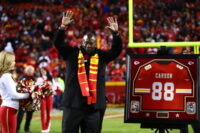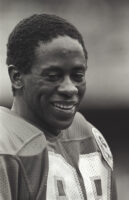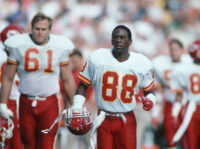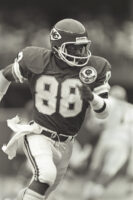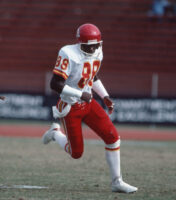Inductees
Carlos Carson
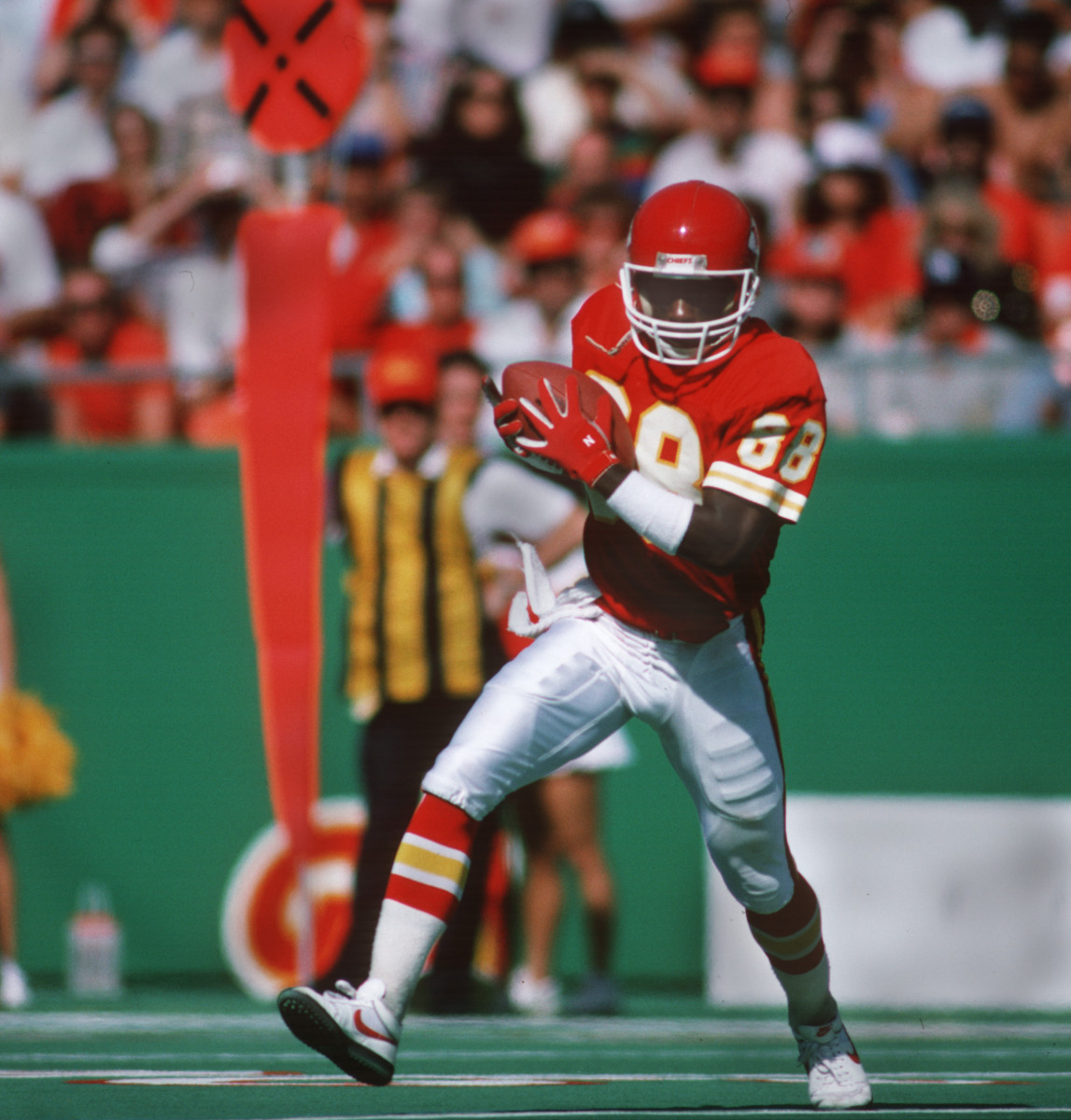
Born: December 28, 1958
You can watch all the old highlight reels you want, ooh and awe over the athleticism that made him a blur in cleats – those were a beat writer’s words – and wonder.
Yet to understand the greatness of Carlos Carson, a Kansas City Chiefs receiver of the 1980s, just listen to those who knew him best.
“I used to judge other defensive backs, like Oakland’s Lester Hayes, off how Carlos did against them,” Kevin Ross, a Chiefs Hall of Fame cornerback, once told the Kansas City Star, “and Carlos started beating him and the other Pro Bowl corners he went against.”
Indeed, Carson wasn’t just a burner but a receiver who torched corner cover men as he starred for the Chiefs in the 1980s, and now he is sprinting into the Missouri Sports Hall of Fame, which is proud to induct Carson with the Class of 2019.
Carson played parts of 10 seasons with the Chiefs from 1980 to 1989 after being a fifth-round draft pick out of Louisiana State University. He hauled in an incredible 6,360 yards receiving – fifth-most in Chiefs history – and holds the franchise record for yards per catch (18.1), plus scored 33 touchdowns.
His career season was 1983, when he caught 80 passes for 1,351 yards and seven touchdowns, as both set franchise records and were career-bests.
Carson also was a two-time All-Pro selection by the United Press International (1983, 1987), as he finished with the second- and fourth-most yards receiving in the National Football League. He has since been inducted into the Chiefs Hall of Fame, where he is one of only three receivers honored – the others being Chris Burford and the great Otis Taylor.
“The greatest thrill I had in becoming a Chief was seeing Otis Taylor coming to scout our seniors when I was at LSU,” Carson told the KC Star of the franchise’s most celebrated wide receiver, who scouted for the club after retiring. “And to get a phone call from him saying, ‘We’re going to draft you in the fifth round.’”
“And here’s Otis Taylor, one of greatest wide receivers I ever saw while growing up, to get a chance to be taught by him, to work with him, was truly a blessing for me.”
The Chiefs had reason to draft Carson, who starred at LSU. In Baton Rouge, he had caught 89 passes for 1,728 yards and 14 touchdowns in only three seasons – and set an NCAA record in 1977 by catching six consecutive passes for touchdowns, five in one game.
His career in Kansas City blossomed in 1983 after the Chiefs hired John Mackovic as coach, who turned loose quarterback Bill Kenney (MSHOF 2017) and opened up the playbook.
That season began with Carson’s known only as a kick returner. Plus, three single-season receiving marks apparently sat safely atop the franchise record book: Burford’s receptions (69) set in 1962 and Taylor’s yards receiving (1,297) and Taylor’s 100-yard games (six). Carson shattered the first two and tied the last one.
“I had to wait my turn,” Carson said. “I wanted to play, but I didn’t feel like I was ready. But I had some great teachers in (veteran receivers) Henry Marshall and J.T. Smith, and I learned the NFL, how to beat bump-and-run routes against great defenders each week.”
Carson credits Chiefs defenders for preparing him well: Ross, Albert Lewis, Deron Cherry and Lloyd Burruss.
He also thanks Stephone Paige, a receiver from 1985 to 1990 who made him “young again” because “he drew a lot of coverages and we both benefited from one another.”
“We called him Speedy for a reason,” former Chiefs cornerback Jayice Pearson said of Carson, whom he covered in practice. He loved his route-running and catching ability. “The thing that struck me playing against him in practice every day was how good he was with his hands. We played a lot of bump-and-run back in the day, and he was so good with his hands, getting our hands off of him, so we could never really get a good jam on him.”
In 1987, Carson earned his second Pro Bowl berth, catching 55 passes for an AFC-best 1,044 yards (19.0 average) and seven TDs in a strike-shortened year.
At the time of his retirement, Carson’s three 1,000-yard seasons were a club record, broken later by Tony Gonzalez.
Said Ross, “For the most part, he got the best of every last one of them (the Pro Bowlers). I don’t remember a guy shutting him down.”
